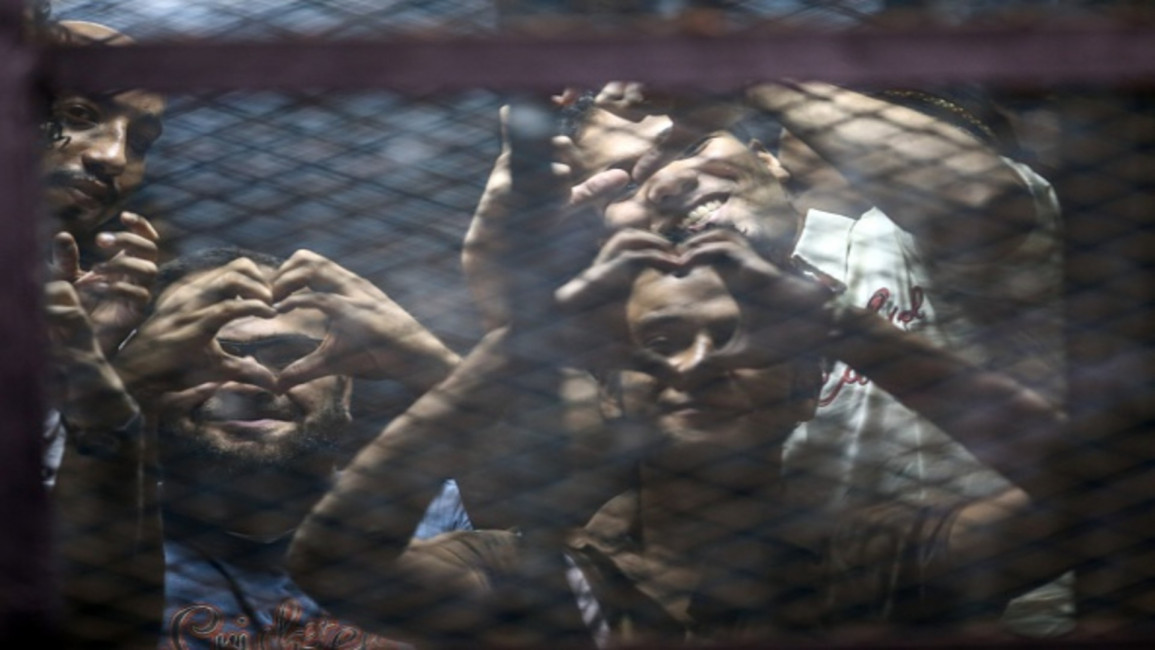Ten years on, repression and violence fail to stamp out Arab activism: Amnesty
Ten years after the Arab Spring, most Middle Eastern countries have either devolved into chaos or restored autocracy in a bid for stability.
Instead of addressing the root causes that drove millions to take to the streets, authorities in Bahrain, Egypt, Libya, Syria and Yemen have crushed protests and attempted to silence dissent, using extreme violence, mass arrests and arbitrary detention to intimidate critics, Amnesty International said, marking the anniversary.
"We can't downplay the extent of people's suffering, Heba Morayef, Middle East and North Africa Director at Amnesty International told The New Arab.
Despite this, activists and human rights defenders across the Middle East and North Africa are continuing their battle for civil rights in the face of increasingly repressive regimes.
"Reducing [the Arab Spring] to the political story means that there's a bias towards looking at high politics, at who won and who lost," Morayef said. Instead, Amnesty International remarked the progress made at a societal level.
In Libya, justice for war crimes and human rights abuses remains elusive and leaders of militias have been promoted instead of being held to account.
However, new Libyan organisations and platforms focusing on justice and human rights documentation have worked tirelessly to establish the UN Fact-Finding Mission at the Human Rights Council.
The armed conflict in Syria has led to 6.7 million people displaced within the country and 5.5 million seeking refuge overseas.
Tens of thousands have been arrested and forcibly disappeared - mostly by the regime - since 2011, including protesters, doctors, and humanitarian aid workers, yet activists continue to work online and among the diaspora.
Egypt's President Abdel Fattah Al-Sisi has launched a massive crackdown on freedom of expression and peaceful assembly. Security forces have also used arbitrary detention, torture and enforced disappearances to suppress dissent.
Despite this, the past 10 years have seen human rights activists in Egypt continuing their work, with a number of new organisations founded inside the country and abroad.
Read also: Egypt detainees languish in jail with 'no end in sight'
"People in the region recognised the true power of peaceful protest and learned to dream of a different future for themselves, one where they seize control of their rights - and there's no turning back," Morayef said.
New organisations led by civil society in the MENA region have been set up to push for justice, accountability and documentation of human rights abuses.
In Tunisia, where the 2011 revolution led to the growth of a vibrant civil society, popular activist movements - such as Manich Msameh - have lobbied against impunity for corruption.
Yemeni human rights group Mwatana has led international initiatives in campaigning for accountability at a global level and was just nominated for the 2021 Nobel Peace Prize.
Groups founded by Syrian diaspora communities contributed - in collaboration with European organisations - to document crimes under international law, leading this week to Eyad Al-Gharib becoming the first Syrian government official to be convicted for crimes against humanity.
This, Morayef said, is an example of the impact of grassroot organisations have had by "work[ing] tirelessly to break the cycle of impunity".
Follow us on Facebook, Twitter and Instagram to stay connected


![President Pezeshkian has denounced Israel's attacks on Lebanon [Getty]](/sites/default/files/styles/image_684x385/public/2173482924.jpeg?h=a5f2f23a&itok=q3evVtko)





